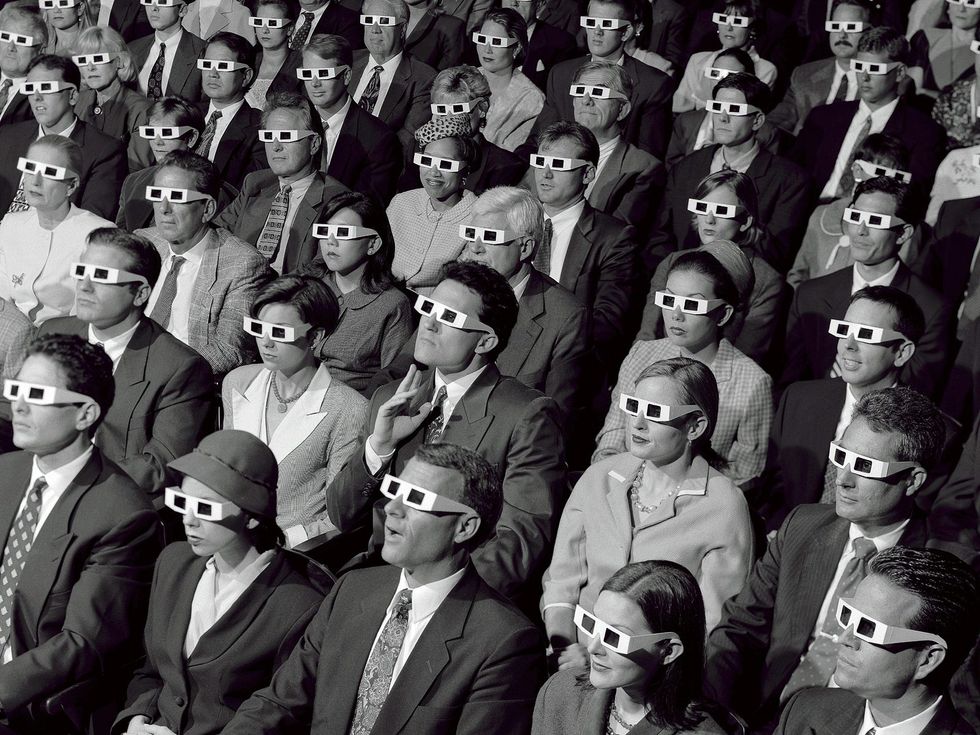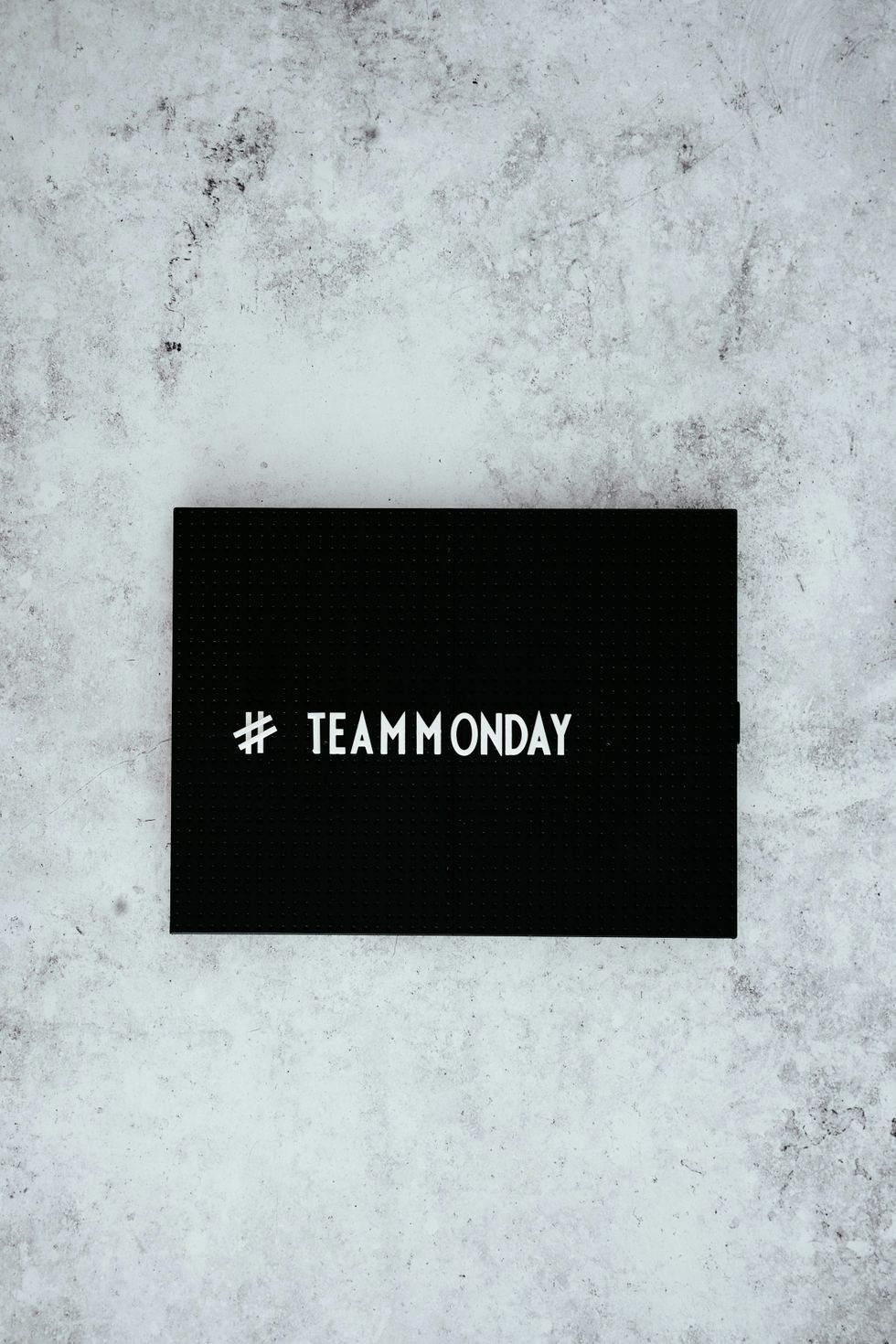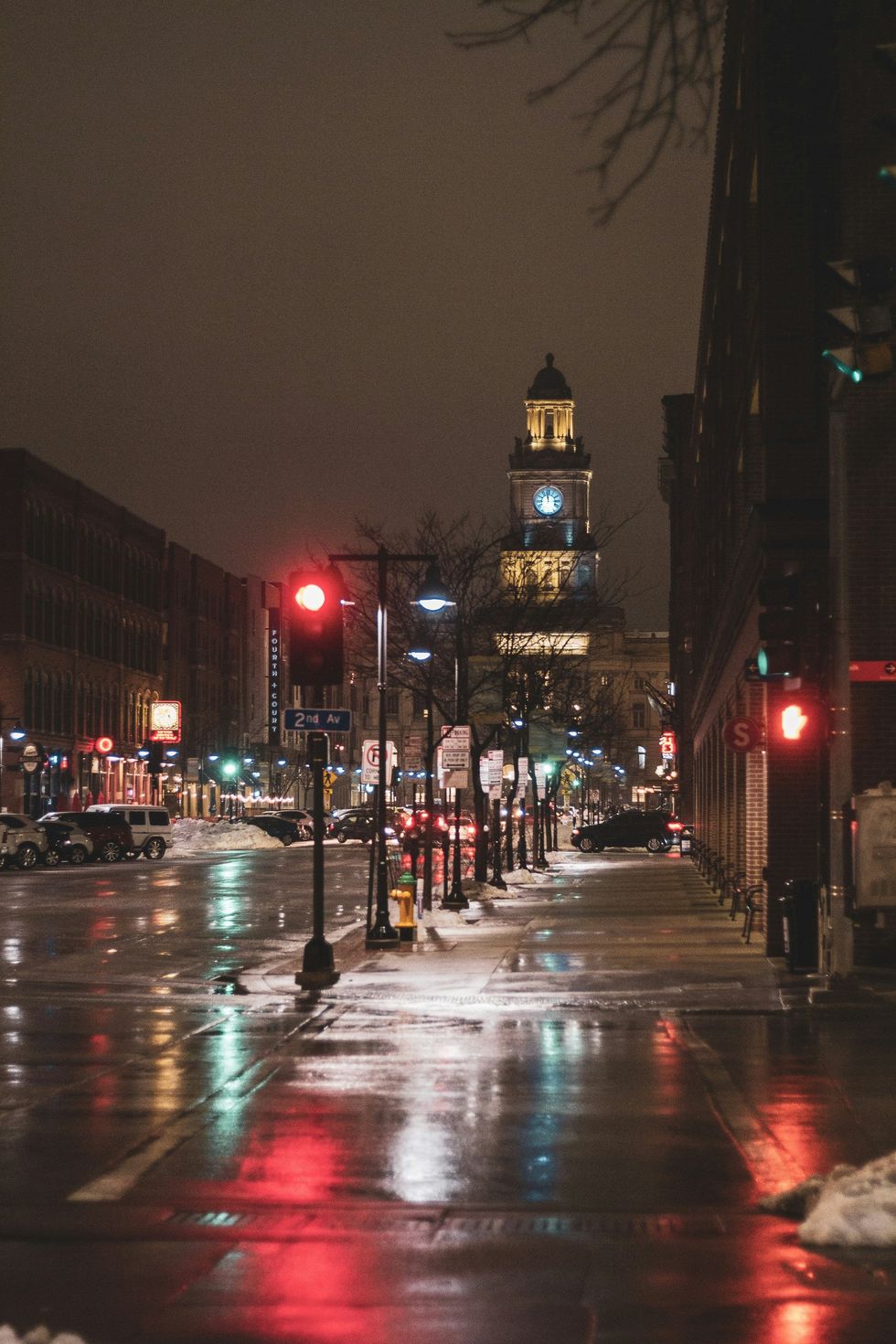From October 2013 through February 2014, a series of anti-gay attacks against gay nightclubs in Moscow were reported. Previously, in June, the Russian Duma passed, and Vladamir Putin signed a law banning any propaganda promoting homosexuality. The law was drafted for the purpose of “Protecting Children from Information Advocating for a Denial of Traditional Family Values.” During the same month of February, the world gathered to watch 88 countries compete in the Sochi Olympics and Russia assert itself as a formidable global presence. Human rights activists estimate that between 4,000 and 6,000 gay men have been executed in Iran for crimes related to their sexual orientation. Meanwhile, Iran continues to antagonize the West with its controversial nuclear development. Awareness of these human rights violations has certainly increased in the 21st century, but there is still a disturbing prevalence of persecution in these two nations. This persecution is the result of the perceived threat that homosexuality poses to the established balance of culture and national identity in both Russia and Iran.
When comparing nations, it is important to not only consider their political systems and their economies, but also the livelihood of their citizens and how that is either protected or debilitated by the government. In particular, it is important to observe how a government treats a subversive subculture. The respective LGBT communities of both Iran and Russia undermine the established social order that both nations have worked so hard to construct: Iran’s theocracy and Russia’s guise of democracy, intent on tightly controlling the state and maintenance of its global dominance. As more LGBT people become open and foster communities within nations around the world, how these states respond will become one of the most important social issues of this century.
In the era of the Russian Empire, gays enjoyed a fair amount of tolerance. The Imperial family extended leniency to many gay and bisexual artists, the primary demographic at the time. However, public opinion was significantly swayed by the Eastern Orthodox Church, which sought to paint homosexuality as a sign of decadence and immorality. The primary appearance of homosexuality in Russian culture was in its literature, and it was not always positive. Tolstoy’s "Resurrection" used the examples of gay characters as signs of corruption in the Empire. In the first stages of the post-revolution era, homosexuality endured no criminalization. However, as the Soviet Union grew, rights for LGBT persons became more constrained. Josef Stalin passed anti-gay legislation, including Article 121 which outlawed male sexuality and sent nearly one thousand Russian men to prison each year under the rule. He also publicly linked homosexuality to both fascism and pedophilia.
After Stalin, the intensity of gay persecution lessened somewhat. The Kruschev era saw the liberalization of some laws, but Article 121 remained and official Soviet sex manuals condemned same sex acts as “dangerous to youth.” After the fall of the Soviet Union, the Boris Yeltsin-led government repealed Article 121 in 1993. Violence against the LGBT community was regular in the late 1990s and early 2000s, but gay Russians were able to fly under the radar for the most part, content to convene in bars with unmarked doors in cities across the country. However, in the late 2000s, legislation banning gay propaganda was passed. This prompted a sudden birth of LGBT rights advocacy groups in many regions, prominently in St. Petersberg. Several different organizations attempted public demonstrations but were met with staunch resistance from the authorities. The passing of the 2013 law banning gay propaganda sparked the most heated response so far and garnered international attention. Many LGBT advocates from other nations called for sanctions against Russia and even for the relocation of the Sochi Olympics. The result has been a fight for rights by many newly established LGBT groups, and a battle for public opinion within Russia’s media which the oppressed are losing. The LGBT movement has made strides to increase the international awareness of their struggle, but much change is needed.
Pre-Islamic Iran was incredibly intolerant of homosexuality. Zoroastrianism, the dominant religion of the time, portrayed homosexuals as demonic and deserving of earthly punishment. Interestingly, it was Islam that brought tolerance of homosexuality to Iran. A remarkable amount of Persian literature described the presence of gays. Even many uncovered love poems have used language that implies homoeroticism. Under the last monarch of the Pahlavi dynasty, same-sex relationships were well tolerated. Many night clubs in Tehran tolerated gay activity, and there was even the beginning of the formation of a gay rights organization. However, then there was the Islamic Revolution, which brought with it an intense condemnation of homosexuals. Gays and lesbians were sentenced to harsh punishments and even execution by the new regime’s penal code. Not only have gays and lesbians since endured fierce persecution in Iran, the country’s leadership has even demonstrated a reluctance to acknowledge their existence. In 2007, at a forum at Columbia University, then-President Mahmoud Ahmadinejad said, “We don’t have homosexuals like [America] I don’t know who told you that.” The President’s comments are indicative of a culture of intense oppression and discrimination.
One common cause of discrimination in both Russia and Iran is the influence of the media. Considering the LGBT community is a minority in both nations, the media’s ability to sway public opinion has proven incredibly effective and led to the two governments’ passage of anti-gay legislation and institutionalization of hatred. In an article appearing in Mufta, a liberal Arab publication, it is pointed out that, “In the few instances where homosexuals, bisexuals, and queer Iranians are covered in the country’s media outlets, they are depicted as a threat to the state and government. They are portrayed as ham-jens-baz, perverts, deviants, or allied with other marginalized groups” (Mirsaedi-Farahani). The media in Russia provides similar treatment to homosexuals. In his article “Advocating for Equality,” Matthew Schaaf describes the extreme marginalization promoted by the Russian media, that “The host of a show on Russia-1, Dmitry Kisilev, recently said that [gays] should be forbidden from ‘donating blood, sperm, and their hearts ... should be buried or burned’ if they die in an accident.” (Schaaf 27) The news organizations of both nations are tightly controlled by the government, therefore public opinion is not an obstacle in the way of further injustice.
The primary cause, or deep cause, of discrimination of gays in Russia is a societal belief that homosexuality is a disease in need of treatment, not simply a person’s nature. This belief has been belabored by Russian anti-gay propaganda campaigns. The Russian government’s main concern is propaganda that contributes to a “distorted understanding of the social equality of traditional and nontraditional sexual relations,” according to the law. Michael Bohm’s article, “The Roots of Russia’s Homophobia,” makes an important point, that “Minors do not become gay, lesbian, bisexual or transgender because of a newspaper article defending LGBT rights that they may stumble upon or a gay parade that they may accidentally witness once a year while walking down the street. They are born that way.” (Bohm) The government’s argument that gays are persecuted to limit their effect on the nation’s youth has been revealed as poorly disguised bigotry. It uses the excuse that it is protecting youths from sexual harassment, although heterosexual pedophilia is much more prevalent. Ultimately, the anti-gay laws are clearly Russia’s attempt to preserve its constructed society, which homosexuality has always had a part in.
The Russian Orthodox Church still plays a major, while more intermediate, role in the continued discrimination of gays. The Church’s “correct” definition of traditional relationships being heterosexual and therefore healthy, and homosexual relationships as dangerous, has been a standing cause for state-supported discrimination. Recent demonstrations from LGBT rights and advocacy groups have acted as trigger mechanisms for government crackdown. Since the Soviet era, it has been the Russian way to hold the massive hammer and sickle above the heads of its citizens, and maintain state control. Anything to challenge that is quietly and effectively disposed of. But the LGBT outrage in Russia is by no means quiet, and will most likely prove a challenge to the government’s authority. Just as Stalin used anti-semitism to grow an anti-semitic grass roots movement, Putin will use anti-gay legislation to do the same.
Iran’s Islamic Revolution brought an abrupt and dramatic change to its society. Previously, gays and lesbians had been tolerated, but the Revolution was a movement dead set on eradicating every piece of the old puppet regime. The revolution stands as the deep cause for homophobia in Iran, while a continuing anti-Western sentiment continues to drive the LGBT further into the ground. The Iranian government’s hatred for homosexuality is palpable. Even its own secretary general of human rights was quoted as saying, “In our society, homosexuality is regarded as an illness and malady.” As homosexual people continue to grow in population and acceptance in Western countries and gay culture is fostered in communities in the West, nations such as Iran will push as hard as possible against these progressive forces. Such is their determination to combat any Western concept, principle or trend. This tendency is equal parts disturbing competition and trigger mechanism. It is especially troubling because while almost all forward-thinking people want to celebrate the progress of gay people in the West, it may mean intensified prejudice in places like Iran.
A third cause of LGBT injustice in Iran is that discrimination through legislation is incentivized for politicians. Iran’s theocracy has succeeded in institutionalizing its hatred for gays. Therefore, political action against the rights of homosexuals has become logical, from the perspective of Iranian politicians. The fear of losing one’s political power is a universal trait amongst government leaders, and when marginalization of a certain group of people becomes part of one’s political strategy, it is unfortunately easy to see how human lives become expendable.
As dire as the situation seems for gays in Iran and Russia, there is hope for solution. Starting with the Russian situation, outside intervention is needed. The UN should explore options to place sanctions on Russia if it does not abide by a certain human rights code, which should explicitly mention unlawful imprisonment. Perhaps it is an extreme example, but the rest of the UN Security Council could threaten to remove Russia from the group if it does not act to improve the rights of gay people. Gays in Russia are clearly fighting against a government with little concern for their rights or livelihood, and it will be all too easy for the movement to lose steam, become broken up, or be discouraged. It is the responsibility for the LGBT rights advocates to garner support from the LGBT community of Western nations, and form allies. In turn, it is the responsibility for these allies to find ways to aide the Russian gay movement and to publicly shame Russia’s transgressions against human rights. It’s doubtful that Putin puts much stock in what other countries think of his, but if the stakes are high enough, he may see the light.
A solution for Iran is much more complicated. The theocracy is a force that will not bend. The greatest weapon that the LGBT people of Iran have to wield is awareness. The movement needs strong, fearless and outspoken leaders to present the atrocities to the international community. It is no secret that gays are executed in Iran, that they are treated as an underclass, but the Western nations of the world are hesitant to poke the nuclear giant. The transgender in Iran must become more outspoken as well. The government quietly funds sex-change operations for those seeking them, and often forces homosexuals to get a sex change in order to achieve “traditional” relationships. This injustice should not be tolerated. If NGOs and humanitarian organizations want to improve human rights globally, they must work with states to take drastic action if necessary. If states refuse to trade with Iran or support its economy in any way, it may bring about progress. The leaders are indoctrinated to believe that homosexuality is a disease, but they may be prompted to respond when they are hit where it hurts: their economy.
Russia and Iran have each established a social order that purposefully marginalizes LGBT persons. It is in the interest of preserving this sacred order that they enact legislation and take violent action against the openly homosexual. These nations can attempt to deny gay people their rights, but the gay rights movement is only increasing in strength. The movement has the potential to remind these governments why they should fear their citizens.



 women sitting on rock near body of waterPhoto by
women sitting on rock near body of waterPhoto by 
 Photo by
Photo by  Photo by
Photo by  Photo by
Photo by  Photo by
Photo by  Photo by
Photo by  Photo by
Photo by  Photo by
Photo by  Photo by
Photo by  Photo by
Photo by  Photo by
Photo by 









 Photo by
Photo by  Photo by
Photo by  Photo by
Photo by  Photo by
Photo by  Photo by
Photo by  Photo by
Photo by  Photo by
Photo by 








